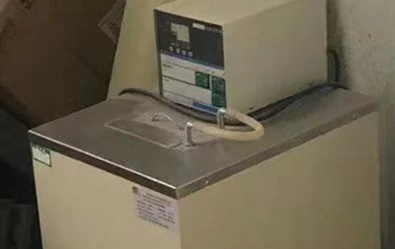loading...
- No. 9, Xingyuan South Street, Dongwaihuan Road, Zaoqiang County, Hengshui, Hebei, China
- admin@zjcomposites.com
- +86 15097380338
- Welcome to visit our website!
Understanding the Benefits and Functions of Water Softener Systems
The Importance of Water Softeners Enhancing Quality of Life
Water is an essential resource for daily living, yet its quality can vary significantly depending on the source. Hard water, which contains high levels of minerals such as calcium and magnesium, can pose several challenges for households and businesses alike. This is where water softeners come into play, providing a practical solution to enhance water quality and improve the overall quality of life.
At its core, a water softener is a device that removes hardness minerals from water through a process called ion exchange. In this process, sodium ions are exchanged for calcium and magnesium ions in the water, effectively reducing the hardness level. As a result, softened water not only feels better to the skin but also reduces the risk of scaling and mineral buildup in plumbing systems and appliances.
One of the most noticeable benefits of using a water softener is its positive impact on household appliances. Hard water can lead to the accelerated wear and tear of appliances such as dishwashers, water heaters, and washing machines due to scale buildup. This crusty residue can significantly reduce the efficiency of these machines, leading to higher energy costs and potentially costly repairs or replacements. By using a water softener, homeowners can extend the lifespan of their appliances, ultimately saving money in the long run.
In addition to preserving appliances, softened water enhances the effectiveness of soaps and detergents. Hard water is known to react with soap, forming a scummy residue that not only diminishes the cleaning power but also requires more soap to achieve the desired results. When using softened water, individuals find that they need less soap for laundry and dishwashing, thereby reducing expenses and contributing to a more sustainable lifestyle. Clothes come out cleaner and brighter, while dishes are left spotless without any streaks or residue.
water softener

Moreover, water softeners contribute to skin and hair health. Many people who suffer from dry skin or hair may find relief through the use of softened water. Hard water can exacerbate skin issues by stripping away natural oils, leading to dryness and irritation. Softened water, on the other hand, is gentler and helps maintain moisture, resulting in softer skin and shinier hair.
Environmental considerations also play a significant role in the importance of water softeners. The reduction in soap usage leads to lesser chemical runoff into the environment, making softened water more eco-friendly. Furthermore, by decreasing the wear and tear on plumbing systems and appliances, households can minimize the resources needed for repairs and replacements, fostering a more sustainable approach to water use.
While the initial investment in a water softener may seem daunting for some, the long-term benefits far outweigh the costs. From improved appliance longevity and enhanced cleaning efficiency to better skin and hair health, the advantages of softened water are clearly evident. Additionally, many modern water softeners are designed to be easy to use and maintain, making them an accessible solution for any household.
In conclusion, water softeners play a vital role in enhancing the quality of water we use every day. By addressing the challenges posed by hard water, they improve appliance efficiency, promote healthier skin and hair, and contribute to environmental sustainability. Investing in a water softener is not just a decision for better water; it’s a step towards a more comfortable and eco-conscious lifestyle. Whether for residential or commercial use, the benefits of these systems are undeniable, making them an essential consideration for anyone looking to improve their water quality.
-
GRP Structures: The Future of Lightweight, High-Performance EngineeringNewsJun.20,2025
-
FRP Water Tank: High-Performance Storage for Corrosive and Clean Water SystemsNewsJun.20,2025
-
FRP Square Tube: The New Industry Standard for Chemical and Structural ApplicationsNewsJun.20,2025
-
FRP Pultruded Profiles: The Ultimate Choice for Lightweight Structural StrengthNewsJun.20,2025
-
FRP Handrails: The Safer, Smarter, and Stronger Choice for Modern InfrastructureNewsJun.20,2025
-
FRP Grating: The Smart Solution for Durable, Lightweight Industrial FlooringNewsJun.20,2025
-
Why Choose a Galvanized Water Tank for Your Storage NeedsNewsMay.21,2025
